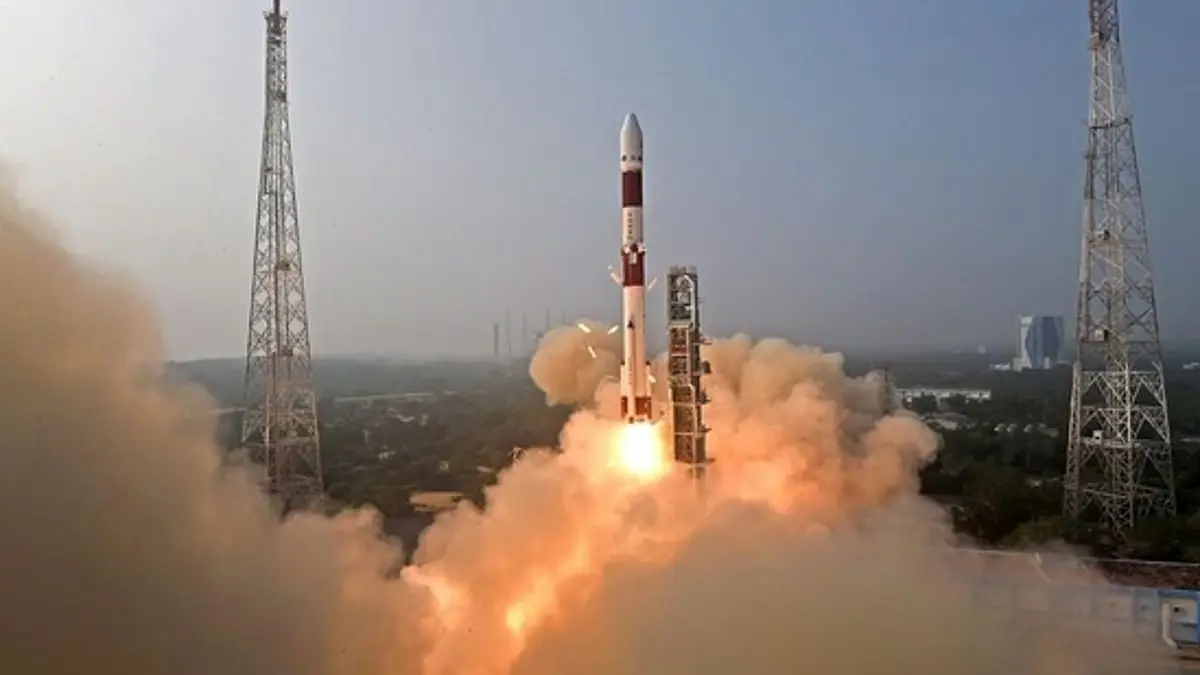Updated 18 May 2025 at 11:29 IST
Explained: Why ISRO’s PSLV-C61 Mission Failed During EOS-09 Launch
The 1,696.24 kg EOS-09 was a crucial part of ISRO’s Earth observation program, intended to provide high-resolution imagery for applications in agriculture, forestry, and disaster management.
- Science News
- 3 min read

New Delhi: The Indian Space Research Organisation (ISRO) suffered a rare setback on Sunday, May 18, after its Polar Satellite Launch Vehicle (PSLV-C61) failed to successfully place the Earth Observation Satellite-09 (EOS-09) into orbit. The rocket, which lifted off at 5:59 AM IST from the Satish Dhawan Space Centre in Sriharikota but failed during the third of four stages due to a fall in pressure.
The PSLV-C61 is a four-stage rocket, with each stage designed to progressively propel the payload into a sun-synchronous polar orbit. While the first two stages functioned nominally, ISRO reported a fall in pressure during the third stage, which uses solid fuel.
“Today we attempted a launch of PSLV-C61 vehicle. The vehicle is a 4-stage vehicle. The first two stages performed as expected. During the 3rd stage, we are seeing observation…The mission could not be accomplished. We are studying the entire performance, we shall come back at the earliest,” said ISRO Chief V Narayanan during a post-launch briefing.
EOS-09: A Critical Payload
The 1,696.24 kg EOS-09 was a crucial part of ISRO’s Earth observation program, intended to provide high-resolution imagery for applications in agriculture, forestry, and disaster management. The mission was particularly significant as it marked the 63rd flight of the PSLV and the 27th in its XL configuration, known for its enhanced payload capacity.
Advertisement
A Rare Failure in PSLV’s Stellar Record
Since its first flight in 1993, the PSLV has been one of ISRO’s most reliable launch vehicles, with over 90 successful missions. However, PSLV-C61 becomes the fourth recorded failure in the rocket’s history.
Previous PSLV mission failures include:
PSLV-D1 (1993) – First developmental flight failed due to attitude control problems.
Advertisement
PSLV-C39 (2017) – Failed due to a heat shield malfunction that trapped the IRNSS-1H satellite.
PSLV-C61 (2025) – Failed due to a pressure drop in the third stage.
“Today 101st launch was attempted, PSLV-C61 performance was normal till 2nd stage. Due to an observation in 3rd stage, the mission could not be accomplished," ISRO posted on X.
Failure Analysis Committee to Investigat
According to reports, a national-level Failure Analysis Committee (FAC) will be formed to investigate the root cause of the anomaly. The committee will reportedly include senior ISRO scientists and external experts from academia. Their objective will be to examine launch data, identify technical lapses, and provide corrective recommendations for future missions.
Published By : Isha Bhandari
Published On: 18 May 2025 at 11:29 IST
